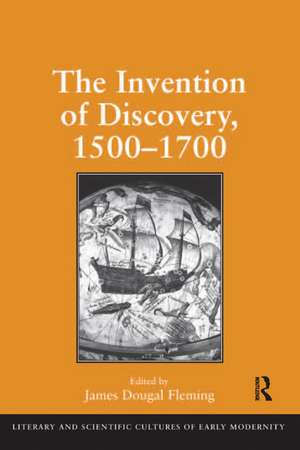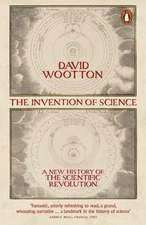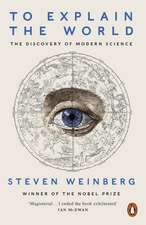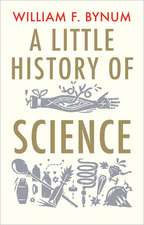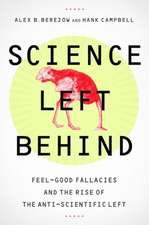The Invention of Discovery, 1500–1700
Editat de James Dougal Flemingen Limba Engleză Hardback – 28 iun 2011
| Toate formatele și edițiile | Preț | Express |
|---|---|---|
| Paperback (1) | 436.14 lei 43-57 zile | |
| Taylor & Francis – 10 iun 2019 | 436.14 lei 43-57 zile | |
| Hardback (1) | 1061.06 lei 43-57 zile | |
| Taylor & Francis – 28 iun 2011 | 1061.06 lei 43-57 zile |
Preț: 1061.06 lei
Preț vechi: 1293.97 lei
-18% Nou
Puncte Express: 1592
Preț estimativ în valută:
203.04€ • 212.52$ • 168.99£
203.04€ • 212.52$ • 168.99£
Carte tipărită la comandă
Livrare economică 31 martie-14 aprilie
Preluare comenzi: 021 569.72.76
Specificații
ISBN-13: 9780754668411
ISBN-10: 075466841X
Pagini: 228
Dimensiuni: 156 x 234 x 14 mm
Greutate: 0.64 kg
Ediția:1
Editura: Taylor & Francis
Colecția Routledge
Locul publicării:Oxford, United Kingdom
ISBN-10: 075466841X
Pagini: 228
Dimensiuni: 156 x 234 x 14 mm
Greutate: 0.64 kg
Ediția:1
Editura: Taylor & Francis
Colecția Routledge
Locul publicării:Oxford, United Kingdom
Cuprins
Contents: Introduction: the invention of discovery, 1500-1700, James Dougal Fleming; 'That full-sail voyage': travel narratives and astronomical discovery in Kepler and Galileo, Piers Brown; Francis Bacon and the divine hierarchy of nature, Steven Matthews; 'Invention' and 'discovery' as modes of conceptual integration: the case of Thomas Harriot, Michael Booth; The undiscoverable country: occult qualities, scholasticism, and the end of nescience, James Dougal Fleming; Spirits, vitality, and creation in the poetics of Tomasso Campanella and John Donne, Anthony Russell; Perfection of the world and mathematics in late 16th-century Copernican cosmologies, Pietro Daniel Omodeo; Discovery in The World: the case of Descartes, Jacqueline Wernimont; Numbering martyrs: numerology, encyclopedism, and the invention of immanent events in John Foxe's Actes and Monuments, Ryan Netzley; Unearthing radical reform: antiquarianism against discovery, Travis DeCook; The discovery of blackness in the early modern bed-trick, Louise Denmead; Newness and discovery in early-modern France, Vincent Masse; Afterword: the art of the field, James Dougal Fleming; Bibliography; Index.
Notă biografică
James Dougal Fleming is Associate Professor of English at Simon Fraser University, Canada. He is also the author of Milton's Secrecy: And Philosophical Hermeneutics (Ashgate, 2008).
Recenzii
'This collection investigates how the modern concept of "discovery" was made, or invented, during the early modern period. Synthesizing the insights of postmodern philosophical hermeneutics with recent approaches to the history of science, this book raises important and timely questions. Broad in scope and interdisciplinary in approach, it will be of interest to scholars in literary studies, intellectual history, and the history of science.' Ralph Bauer, University of Maryland, USA 'Together, these essays provide a thorough and extensive investigation of the notion of the invention of discovery in the early modern period... Though, as he says, ’interdisciplinarity is a very general custom of postmodern academia’, [Fleming's] book underlines why it is important for that term to have meaning, and it will be of interest to scholars of intellectual and scientific history as well as those working in literary studies.' Review of English Studies '... well worth discovering...' Renaissance Quarterly 'The Invention of Discovery, 1500-1700, is particularly interesting from the perspective of historical epistemology, as it helps us to understand the meaning of early modern insistence on new, newness, and newly discovered.' ISIS
Descriere
From Bacon to Galileo, from stagecraft to maths, from martyrology to romance, contributors to this interdisciplinary collection examine the early-modern generation of discovery as an absolute and ostensibly neutral standard of knowledge-production. They further investigate the hermeneutic implications for the epistemological authority that tends, in modernity, still to be based on that standard.
